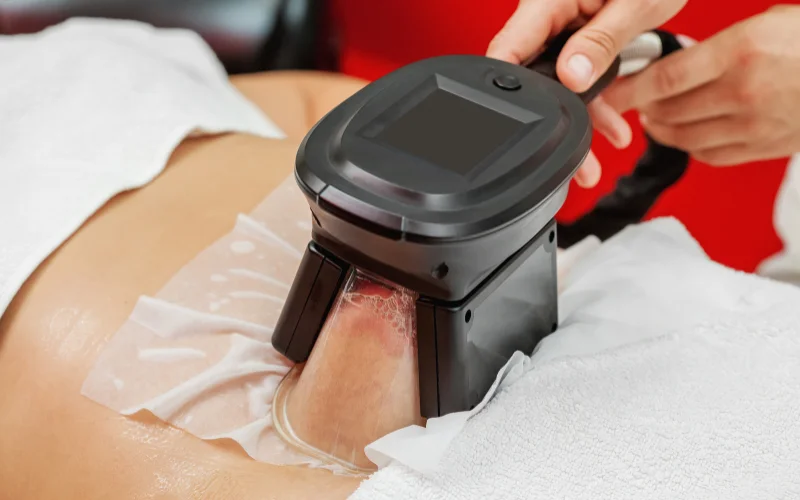Lexapro, known generically as escitalopram, is a widely prescribed antidepressant used to treat anxiety and major depressive disorder. Its effectiveness in improving mood and emotional well-being is well-documented, making it a go-to choice for many healthcare providers. However, like all medications, Lexapro is not without its drawbacks. Among the various side effects, Lexapro nausea stands out as one of the most common and bothersome experiences for users. The good news is that understanding the causes and symptoms of Lexapro-induced nausea can empower you to take proactive steps in managing it. In this article, we will explore why it happens, what it feels like, and most importantly, how to manage it effectively. Whether you’re new to Lexapro or have been taking it for a while, this guide is designed to offer practical tips and insights to improve your comfort and well-being. So, let’s get started on the path to feeling better, both mentally and physically.
Key Takeaways
- Take Lexapro with food to reduce stomach discomfort.
- Stay hydrated by drinking plenty of water.
- Eat smaller, more frequent meals to prevent nausea.
- Consider ginger in tea or supplement form to soothe the stomach.
- Use over-the-counter remedies like antacids, but consult your doctor first.
- Explore alternative therapies such as acupuncture and aromatherapy.
- Consult your healthcare provider if nausea persists or worsens.
What is Lexapro?
Lexapro is an SSRI, or selective serotonin reuptake inhibitor, that works by increasing serotonin levels in the brain. Serotonin is a neurotransmitter that plays a crucial role in mood regulation. By enhancing serotonin levels, Lexapro helps alleviate symptoms of depression and anxiety. However, this alteration in serotonin can also affect other parts of the body, including the digestive system, leading to nausea.
How Lexapro Affects the Body

Lexapro’s primary function is to balance serotonin levels in the brain. While this can significantly improve mood and anxiety symptoms, it can also disrupt normal digestive processes. Serotonin is not only present in the brain but also in the gut, where it regulates bowel movements and function. When Lexapro increases serotonin levels, it can lead to nausea by affecting the gastrointestinal system.
Common Triggers
- Starting Treatment: Nausea is most common when beginning Lexapro treatment or increasing the dosage.
- Timing of Dosage: Taking Lexapro on an empty stomach can exacerbate nausea.
- Individual Sensitivity: Some people are more sensitive to changes in serotonin levels and may experience more pronounced side effects.
Symptoms of Lexapro Nausea
Lexapro nausea can manifest in various ways, including:
- Persistent Stomach Discomfort: A constant feeling of unease in the stomach.
- Vomiting: In severe cases, nausea can lead to vomiting.
- Loss of Appetite: Nausea may reduce the desire to eat, leading to weight loss.
- Dizziness: Feeling lightheaded or dizzy often accompanies nausea.
Managing Lexapro Nausea

Dealing with Lexapro nausea can be challenging, but several strategies can help manage this side effect effectively.
Practical Tips
One of the simplest ways to minimize nausea is to take Lexapro with food. Consuming the medication during a meal can help reduce stomach discomfort. Staying hydrated is also crucial; drinking plenty of water can ease stomach issues. Eating smaller, more frequent meals can prevent the stomach from becoming too empty or too full, both of which can worsen nausea. Additionally, ginger, whether in tea or supplement form, has been known to soothe the stomach and alleviate nausea.
Over-the-Counter Remedies
In some cases, over-the-counter remedies can provide relief from Lexapro nausea. Antacids can neutralize stomach acid, reducing nausea and discomfort. Products containing bismuth subsalicylate, such as Pepto-Bismol, can also help soothe the stomach lining. However, it’s essential to consult your doctor before using these remedies to ensure they do not interact with Lexapro or other medications you may be taking.
Alternative Therapies
Exploring alternative therapies can also be beneficial in managing Lexapro nausea. Acupuncture is one such therapy that has shown promise in alleviating nausea. By stimulating specific points on the body, acupuncture can help balance the body’s energy flow and reduce symptoms. Aromatherapy, using essential oils like peppermint or lavender, can also provide relief. These oils can be inhaled or applied topically to help soothe nausea.
Consult Your Doctor
If nausea persists despite these measures, it’s essential to consult your healthcare provider. They may adjust your dosage or suggest an alternative medication. It’s crucial never to stop taking Lexapro abruptly, as this can cause withdrawal symptoms and worsen your condition. Your doctor can guide you through a safe and effective plan to manage nausea while continuing your treatment.
Lifestyle Changes to Alleviate Nausea
Making certain lifestyle changes can also help alleviate Lexapro nausea. Adjusting your diet is a good starting point. Avoiding spicy foods can prevent stomach irritation. Limiting caffeine intake is also advisable, as caffeine can increase stomach acid, leading to nausea. Opting for bland foods like rice, bananas, and toast can be gentler on the stomach and help reduce nausea.
Somatic Therapy Exercises
Incorporating somatic therapy exercises can also be beneficial. These exercises focus on reducing overall stress and anxiety, which can exacerbate digestive issues. By managing stress through somatic therapy, you may find relief from nausea and improve your overall well-being.
When to Seek Medical Help

While mild nausea is a common side effect of Lexapro, it’s important to seek medical help if your nausea becomes severe or persistent. If you experience additional symptoms such as vomiting, dizziness, or significant weight loss, contact your healthcare provider. These could indicate that your body is not tolerating the medication well and may require adjustments to your treatment plan.
Additionally, if you notice signs of dehydration like dry mouth, dark urine, or reduced urine output, seek medical attention immediately. Dehydration can worsen nausea and lead to more serious health issues. Always consult your doctor if you experience any new or worsening symptoms after starting Lexapro to ensure your treatment remains safe and effective.
Conclusion
Managing Lexapro nausea requires a combination of practical tips, over-the-counter remedies, and alternative therapies. By taking Lexapro with food, staying hydrated, and exploring options like acupuncture and aromatherapy, you can significantly reduce nausea. Always consult your healthcare provider if symptoms persist, as they can offer personalized advice and adjustments to your treatment plan. With the right strategies, you can effectively manage Lexapro nausea and continue your journey towards better mental health.
FAQs
1. How long does Lexapro nausea last?
Lexapro nausea typically subsides within a few weeks as your body adjusts to the medication. However, the duration can vary from person to person. If nausea persists beyond this period, it’s essential to consult your healthcare provider. They may need to adjust your dosage or explore alternative treatments to help manage this side effect effectively.
2. Can I take anti-nausea medication with Lexapro?
It’s crucial to consult your doctor before combining any medications. While some anti-nausea medications can be taken with Lexapro, others may interact negatively with the antidepressant. Your healthcare provider can recommend safe options that won’t interfere with Lexapro, ensuring you get relief from nausea without compromising your treatment.
3. Is it safe to stop taking Lexapro if nausea is severe?
Never stop taking Lexapro without medical advice. Abruptly discontinuing the medication can lead to withdrawal symptoms and worsen your mental health condition. If nausea is severe, consult your doctor. They can provide a safe plan to taper off the medication if necessary or suggest alternative treatments to manage the nausea while continuing your Lexapro regimen.







